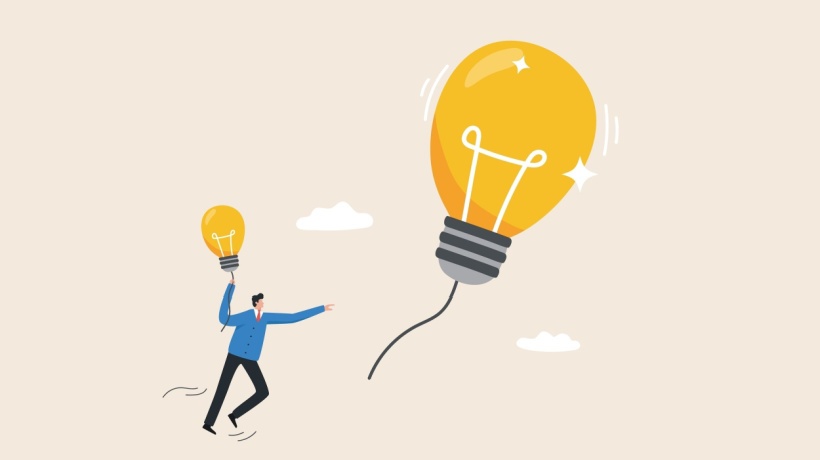Exploring The Dynamics Of Habits To Facilitate Change
When was the last time you heard someone say “I am too old to learn…” or even “My employee is too old to change their ways of doing…”? Despite that these are sentences that we have often heard, science tells us that anyone can change or learn new behaviors at any age—if we apply certain principles on how the brain works and the context influencing one’s willingness to facilitate change.
The Role Of Age And Habit Formation
Age can indeed impact one’s receptiveness to change due to the deeply ingrained nature of habits. Over time, our behaviors and actions become deeply rooted in our daily routines, making it more challenging to overcome these patterns. Humans are creatures of habit, and breaking free from established routines becomes increasingly difficult as we grow older. However, it is crucial to note that resistance to change is not solely limited to older individuals. We have all encountered younger individuals who are equally reluctant to embrace change and are firmly entrenched in their ways. Hence, age alone cannot be considered the sole determining factor in one’s ability to change.
The Influence Of Personality Traits On Change
Personality traits play a significant role in shaping an individual’s attitude toward change. Research suggests that traits such as extroversion, conscientiousness, agreeableness, neuroticism, and openness to new experiences have a significant impact on one’s adaptability. During young adulthood, these traits tend to undergo more significant fluctuations compared to other life stages, including adolescence. Individuals who exhibit higher levels of extroversion and openness to new experiences are often more inclined to embrace change, as they naturally seek novel experiences and are comfortable with uncertainty. Conversely, those who score higher on traits such as neuroticism may exhibit higher resistance to change due to their tendency to experience anxiety and discomfort in unfamiliar situations.
Navigating The Change Process
Implementing behavioral change is a gradual and ongoing process that requires consistent effort over time. It is important to acknowledge that change does not happen overnight, and expecting immediate results may lead to frustration and discouragement. To maintain motivation throughout the change journey, it is advisable to focus on progress rather than perfection. By taking small, manageable steps each day, even if they seem insignificant or slow, individuals can steadily move towards their desired goals.
Strategies To Facilitate Change
To facilitate change effectively, individuals can employ various strategies that promote self-reflection and provide a structured approach to achieving their objectives. One such strategy involves documenting the pros and cons of change. This exercise allows individuals to weigh the potential benefits and drawbacks, thereby clarifying the reasons for initiating the change process.
Additionally, adopting the “Cost of Inaction” approach, as described by Tim Ferris, can provide a powerful motivator. By visualizing the potential long-term consequences of inaction, individuals gain a clearer understanding of the importance of initiating change sooner rather than later. As stated by Charles Duhigg, “If you believe you can change—if you make it a habit—the change becomes real. This is the real power of habit: the insight that your habits are what you choose them to be. Once that choice occurs—and becomes automatic—it’s not only real, it starts to seem inevitable.”
Tips To Facilitate Change By Developing New Habits And Practicing Learning
Creating new habits is an instrumental aspect of driving sustainable change. By incorporating small, manageable habits into daily routines, individuals can gradually steer themselves in the desired direction. Consider the following habits that can aid in facilitating personal and professional change:
1. Fitness: Muscle Regular Practice Of Learning
Devote just 5-10 minutes per day to learning something new. This could involve reading educational articles, watching informative videos, or listening to podcasts related to your field or areas of interest. By consistently engaging in this habit, you can expand your knowledge and stay up to date with emerging trends and practices.
2. Curiosity By Design: Identifying Worthwhile Problems To Solve
Develop a habit of observing the world around you and asking insightful questions. Pay attention to daily occurrences, and ponder how you can contribute to solving problems or improving processes. Cultivating curiosity allows you to identify opportunities for innovation and growth, thereby fostering a mindset conducive to change.
3. Positive Reinforcement: Belief And Mindset
Nurture a positive belief system and mindset that supports your journey of change. Acknowledge your achievements, no matter how small, and celebrate progress along the way. By reinforcing positive self-talk and fostering a growth mindset, you can enhance your resilience and maintain motivation during times of difficulty or setbacks.
Conclusion
In conclusion, the ability to change is not solely determined by age. While older individuals may face greater challenges in breaking established habits, younger individuals can also display resistance to change. Personality traits, such as extroversion, conscientiousness, agreeableness, neuroticism, and openness to new experiences, play a significant role in shaping one’s adaptability. Regardless of age or personality, change is a gradual process that requires consistent effort and a focus on progress. By implementing strategies such as documenting the pros and cons of change and visualizing the cost of inaction, individuals can gain clarity and motivation.
Developing new habits aligned with personal and professional goals is a powerful tool for facilitating sustainable change. Embracing change as an opportunity for growth and innovation can lead to enhanced productivity and success in both personal and organizational contexts.

